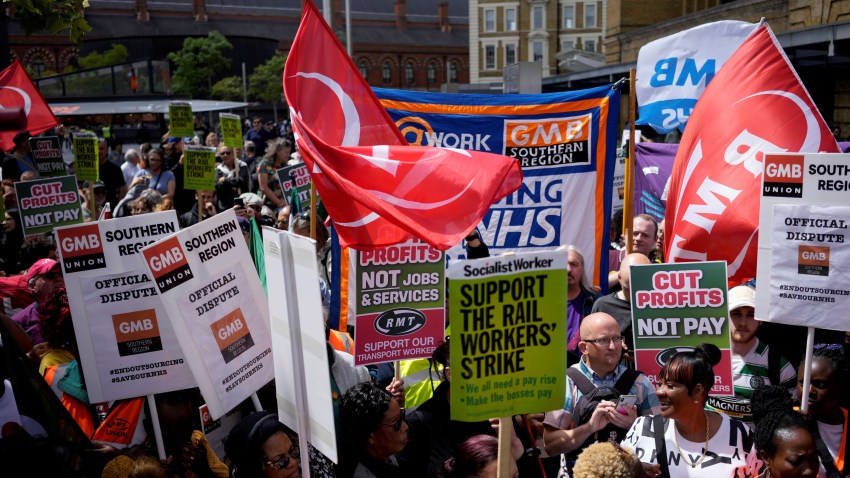After decades of declining influence, British trade unions are back. Since June, a series of strikes by railway workers over wages and working conditions represent the largest industrial action in decades. And postal workers with similar grievances have organized several strikes since the summer, with more scheduled for November and December.
Long dormant, British trade unions are hitting their stride again. Membership is up, and the leadership and grassroots members are mobilized. Yet their resurgence poses a peculiar set of challenges for both of the U.K.’s dominant parties. The ruling Conservatives are keen not to come off as too harsh toward British workers. But newly installed Conservative Prime Minister Rishi Sunak has put fiscal discipline and restoring market confidence at the center of his governing agenda, meaning tensions between unions and the government are likely to remain high.
For Labour, the relationship is more complex, especially since Jeremy Corbyn was replaced as party leader by Keir Starmer in 2020. As part of its shift back toward a more centrist approach under Starmer, the party is seeking to win back swing voters who were put off by Corbyn’s return to Labour’s historical roots, on trade unions but also more generally. That means courting union support while distancing itself from the more activist unions currently vying for influence in the resurgent labor movement.

